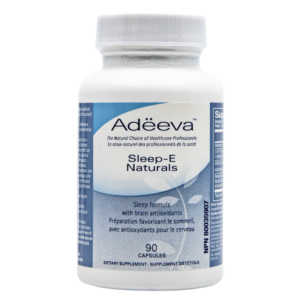
Melatonin Supplementation Shown to Prevent and Treat Macular Degeneration – the leading cause of blindness after 55 years of age
Sources: JAMA Ophthalmology (Oct. 2024) and Ann NY Acad. Sci (Dec. 2005)
Lifestyle Medicine Update (June 26, 2024)
Melatonin is not only important for a good night’s sleep, but it also possesses other properties that are shown to slow many aspects of aging and help prevent various age-related diseases. One of those age-related diseases is macular degeneration, which is the leading cause of vision loss in people over the age of 55. Dating back to 2005 we saw an important study showing that melatonin supplementation (3 gm per evening) could halt or slow the progression of macular degeneration in 100 patients who had either dry or wet (the complicated) forms of macular degeneration. The majority of these patients, who were given the melatonin supplement, showed objective improvement in the structure of the visual centre in the back of the eye, with stabilization of their vision. In 2024, reporting in JAMA Ophthalmology a large study showed that individuals who regularly take melatonin supplements at night as a sleep aid showed a 58% decreased risk of developing macular degeneration compared with those not using a melatonin supplement. This arm of the study followed over 120,000 patients, over 50 years of age, from 2008 to 2024, who had no history of macular degeneration at the onset of the study. Those who took melatonin daily, had a 58% reduction in developing macular degeneration as the years went by. The study also noted that in the patient group that already had early-stage macular degeneration, those taking a melatonin supplement daily showed a 56% slower progression of their disease.
This all makes sense when you consider that melatonin is an antioxidant that can help protect the optic nerve and other components of retina from free radical damage stemming from UV-light, alcohol and cigarettes. Melatonin is also shown to control eye pigmentation and thereby regulate the amount of light reaching the photoreceptors of the eye. It also prevents retinal pigment epithelial cells from free radical damage (oxidation) and it quenches free radicals in the back of the eye. (see reference 1 for more details). For a long time, I have suggested the people over the age of 40 take a melatonin supplement one hour before bedtime. By age 40 your melatonin levels have decline markedly, which means that you lose the deep sleep-facilitating effects of melatonin that help to produce daily renewal of your being and you lose melatonin’s immune modulating effects, anti-cancer effects, antioxidant effects, and anti-inflammatory effects, unless you take a supplement each day to restore your melatonin status.
I personally take a natural sleep aid supplement each night that contains the combination of:
Melatonin
5 HTP
GABA
Bacopa Monnieri
These four natural agents work together to help you fall asleep, reach deep, renewing levels of sleep, while also supporting your memory and a variety of other health-promoting processes. The melatonin also appears to be important in helping to prevent age-related macular degeneration, as I have cited today. This is just another illustration that nutritional and lifestyle medicine is good medicine, when applied by following the scientific evidence. I have included the references for melatonin in macular degeneration prevention and treatment in the text below.
References:
Yi C. et al. Effects of melatonin in age-related macular degeneration. Ann N Y Acad Sci. 2005 December:1057: 384-92
https://pubmed.ncbi.nlm.nih.gov/16399908/#:~:text=Melatonin%20has%20been%20shown%20to,RPE)%20cells%20from%20oxidative%20damage.
Hutton D. Melatonin may reduce risk of age-related macular degeneration. JAMA Ophthalmology June 11, 2024. https://www.ophthalmologytimes.com/view/melatonin-may-reduce-risk-of-age-related-macular-degeneration
Marcus A. Melatonin may cut risk of age-related eye disease. Medscape June 6, 2024. Melatonin May Cut Risk for Age-Related Eye Disease (medscape.com)
Eat Smart, Live Well, Look Great,
Dr. James Meschino
Recommended Supplements

Dr. James Meschino
ABOUT THE AUTHOR
Dr. James Meschino, DC, MS, ROHP, is an educator, author, and researcher having lectured to thousands of healthcare professionals across North America. He holds a Master’s Degree in Science with specialties in human nutrition and biology and is recognized as an expert in the field of nutrition, anti-aging, fitness, and wellness as well as the author of numerous books.

